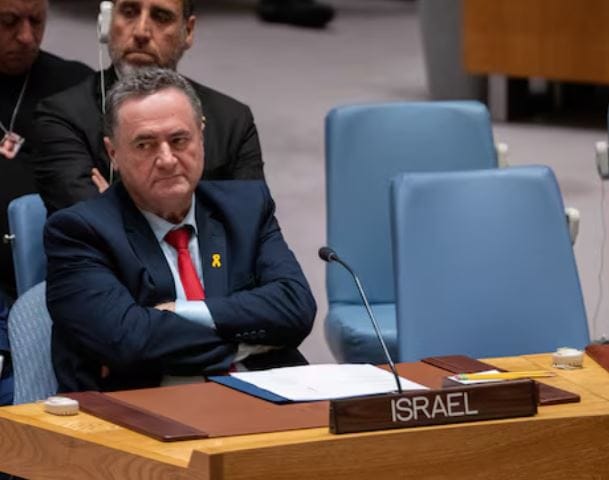Escalating Tensions with Hezbollah
On July 27, 2024, Foreign Minister Israel Katz signaled that Israel is nearing a full-scale conflict with Hezbollah and Lebanon. This declaration came in the wake of a catastrophic rocket attack that struck a football ground in the Israeli-occupied Golan Heights, resulting in the deaths of ten individuals. Katz described the attack as a severe breach of Israel’s red lines, suggesting that the situation could soon escalate into an all-out war.
The Iranian-backed Lebanese militant group Hezbollah has denied any involvement in the attack, but the incident has significantly heightened regional tensions. Katz’s warning underscores the severity of the situation and Israel’s readiness to respond decisively.
International Reactions and Implications
The international community is closely monitoring the escalating conflict between Israel and Hezbollah. The United Nations Security Council has convened meetings to address the deteriorating situation. Israel’s stance reflects a broader strategy to assert its position in the region and deter further aggression from Hezbollah and its allies.
The potential for an expanded conflict has raised concerns among global leaders about the stability of the Middle East. Analysts are closely watching how Israel’s response will impact regional dynamics and whether it will provoke further actions from Hezbollah or its supporters in Lebanon.
The international response will be crucial in shaping the trajectory of the conflict. Diplomatic efforts may be mobilized to de-escalate tensions, but the high-stakes nature of the situation makes it challenging to predict the outcome.
Hezbollah’s Denial and the Path Forward
Hezbollah has categorically denied any involvement in the rocket attack, maintaining that it is not responsible for the violence. This denial adds another layer of complexity to the conflict, as Israel’s accusations could exacerbate tensions within Lebanon and the broader region.
The path forward remains uncertain, with the potential for further military engagements or diplomatic interventions. The international community’s role will be pivotal in managing the crisis and preventing a full-scale war. Observers are watching closely to see if any conciliatory measures will be introduced or if the situation will continue to escalate.
Summary
The recent rocket attack in the Golan Heights has triggered a severe response from Israel, with Foreign Minister Israel Katz warning of an impending all-out war with Hezbollah and Lebanon. The attack, which resulted in ten deaths, has heightened tensions and led to strong threats from Israel. Hezbollah’s denial of involvement adds complexity to the situation. The international community’s reaction will be crucial in determining the future course of the conflict.
Key Learning Points
| Point | Description |
|---|---|
| Imminent War Warning | Israel’s Foreign Minister warns of a potential all-out war with Hezbollah following a deadly rocket attack. |
| International Impact | The escalating conflict has drawn international attention and concerns about regional stability. |
| Hezbollah’s Denial | Hezbollah denies involvement in the attack, complicating the conflict and regional dynamics. |
| Potential for Escalation | The situation’s trajectory remains uncertain, with possible military or diplomatic developments ahead. |
Soumya Smruti Sahoo is a seasoned journalist with extensive experience in both international and Indian news writing. With a sharp analytical mind and a dedication to uncovering the truth, Soumya has built a reputation for delivering in-depth, well-researched articles that provide readers with a clear understanding of complex global and domestic issues. Her work reflects a deep commitment to journalistic integrity, making her a trusted source for accurate and insightful news coverage.



